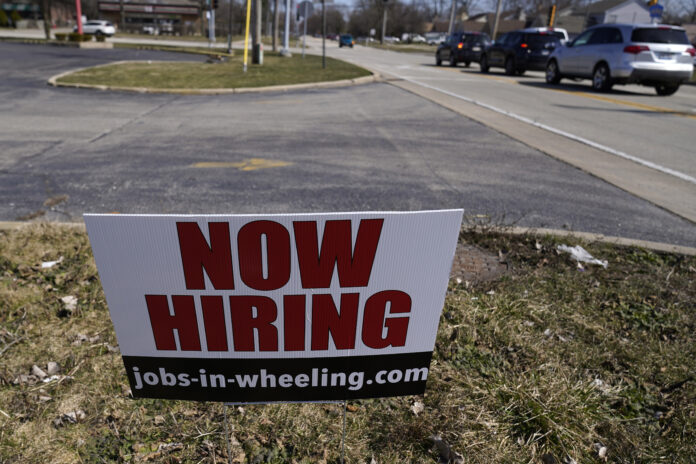The age-old debate between academia and the business world has resurfaced, this time over whether generous unemployment insurance benefits are to blame for employers’ hiring woes.
Small-business owners and business organizations contend the extra $300 a week in federal unemployment benefits is why they can’t fill open positions, despite the state’s still-elevated unemployment rate. But economists disagree, saying the reasons why 68,000 people are collecting unemployment benefits in Rhode Island are more complex.
These arguments will be put to the test as changes to state unemployment policies are slated to start on May 23. First, recipients will again be required to prove they are actively looking for work – a policy that was relaxed during the COVID-19 pandemic. At the same time, legislation that has passed in both chambers of the R.I. General Assembly increases the earnings recipients can make through part-time work while still qualifying for unemployment benefits.
Gov. Daniel J. McKee signed the legislation into law Friday afternoon.
The work-search requirement calls for recipients of the benefits to seek full-time work, but the bill offers incentives for part-time earnings. Asked whether these two changes contradict one another, R.I. Department of Labor and Training Director Matthew Weldon said no.
He insisted the two worked in concert to “flip the switch,” turning a disincentive to work into an incentive for people to dip their toes back into the workforce.
Indeed, 90% of the people collecting unemployment benefits are not working at all, according to DLT data. If just 4% of recipients started earning some money through part-time work, it would stop the drain on the state unemployment fund while also helping employers find workers, according to Weldon.
How will the state measure if these changes are working? Weldon said a minimum goal is a 10% increase in the number of benefit recipients reporting some earnings, but he was optimistic for a greater impact. Gov. Daniel J. McKee said in an emailed statement that the state will be monitoring unemployment data weekly to track progress, but he did not share a specific number or benchmark the state is aiming for.
Alan Krinsky, a senior policy analyst at Providence-based Economic Progress Institute, was skeptical these policies would make much of a difference at all.
“Despite the anecdotes we’ve heard, there’s no good evidence that unemployment benefits are causing hiring problems,” Krinsky said.
Instead, Krinsky said low pay, safety concerns and a lack of child care are reasons why people are reluctant to go back to work. The hospitality industry, in particular, has suffered from all three of these ailments, compounded by the fact that those still working have had to add enforcing pandemic guidelines among customers to the list of job stressors.
Sarah Bratko, a lobbyist for the Rhode Island Hospitality Association, pushed back, calling it a classic example of the difference between an academic model and a “real-world” experience.
“I would argue people who say it doesn’t have an impact haven't been on the ground,” Bratko said of more-generous unemployment benefits.
As for the suggestion that the hospitality industry should be offering better pay and benefits to workers, she said, “I would challenge anyone who thinks that to look at their [financial] statements and suggest where they find the money to do that.”
Update: Adds paragraph four, noting Gov. Daniel J. McKee's signing of legislation related to unemployment insurance qualification.











Sarah Bratko is absolutely CORRECT!!!! Academia and “real world” are 2 very different things! Trying to find certified nursing assistants for nursing homes prior to the pandemic was a struggle, during and after the high government dole outs it is virtually IMPOSSIBLE to get people hired and show up for work everyday! The nursing home industry is paying the highest wages to CNA’S, benefits do not matter anymore because benefits are from the government already. SO it is swimming against the tide, then put minimum staffing legislation on top of it, NO WIN SITUATION!
What Mr. Krinsky is forgetting is that people historically could not afford to not work because of “low pay.” The government is subsidizing them to stay home so that they have the luxury of choosing to work for “low pay” or not. If the government removes the subsidy (the extra $300 / week), workers will be motivated to get a job to cover expenses. So, yes, Mr. Krinsky, the $300 is directly related.